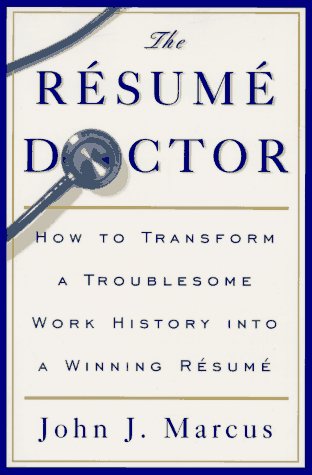We may earn a commission if you click on a product link and make a purchase at no additional cost to you. For more information, please see our disclosure policy.
Last updated: November 30, 2024
Doctors play a vital role in protecting us from diseases and promoting healthier, longer lives. Through their expertise and unwavering dedication, they truly embody the qualities of heroes. The incredible part is that these heroes are not mythical figures or higher beings—they are ordinary humans who have chosen an extraordinary path. This means that you, too, can become a doctor and make a meaningful impact if you are committed to pursuing this noble profession.
Becoming a doctor demands determination, hard work, and a genuine desire to make a difference. If you’re curious about what it takes to embark on this journey. The path is challenging but immensely rewarding!
Becoming a doctor is a journey of passion, dedication, and resilience. Ready to take the first step toward changing lives and making a difference? Discover how to make your dream a reality. #BecomingADoctor #MedicalCareer #FutureDoctorClick To TweetSteps to Becoming a Doctor
- Earn a bachelor’s degree in a relevant field like biology or chemistry.
- Take the Medical
College Admission Test (MCAT). - Complete medical school to obtain an MD or DO degree.
- Participate in a residency program to specialize in a medical field.
- Pass the United States Medical Licensing Examination (USMLE) or COMLEX-USA for licensure.
- Consider board certification in your specialty for added credibility.
- Gain hands-on experience during clinical rotations.
- Engage in research opportunities to enhance your medical expertise.
- Develop strong communication and interpersonal
skills . - Stay updated with continuing education and advancements in healthcare.
Earn a Bachelor’s Degree
A bachelor’s degree is the foundational step in your journey to becoming a doctor. This degree should focus on fields like science and mathematics to prepare you for the rigorous coursework in medical school. Academic success in these areas is essential for passing the MCAT and gaining admission to a reputable medical program.
While most aspiring doctors choose majors like biology, chemistry, or physics, some students opt for non-traditional fields such as psychology or public health. Regardless of your chosen major, the key is to complete the prerequisite coursework required for medical school, including subjects like organic chemistry, biology, and biochemistry.
This book is intended for someone curious to learn more about a career in healthcare, but not certain if it is right for them, or if the industry would be a good fit for them.
Gain Experience During Your Studies
While earning your degree, gaining practical experience in caregiving environments is crucial. Volunteer in hospitals, shadow doctors or participate in internships. These experiences will not only strengthen your medical school application but also give you insight into the daily life of a medical professional. Admissions committees value candidates who demonstrate a genuine commitment to helping others and an understanding of the challenges and rewards of a medical career.
Additionally, involvement in extracurricular activities such as student organizations,
Prepare for and Take the MCAT
The MCAT is a critical component of medical school applications. This exam tests your knowledge of science, problem-solving, and
Many students spend months preparing for the MCAT, utilizing resources such as practice tests, review books, and online courses. The exam covers topics including biological and biochemical foundations, chemical and physical principles, and critical analysis and reasoning. A solid study
Ready to Add 15 Points to Your MCAT Score?
Students who put in the work with Kaplan raise their scores by 15 points on average. And it’s no surprise because our MCAT prep is personalized to you—so not a minute goes to waste.
Complete Medical School
Medical school is a four-year commitment, divided into two years of classroom and laboratory education followed by two years of clinical
The first two years typically focus on foundational medical knowledge, including anatomy, physiology, pharmacology, and pathology. You’ll spend time in lectures, labs, and simulations to build a strong theoretical understanding of medicine. The final two years involve clinical rotations in various specialties, such as internal medicine, surgery, pediatrics, and obstetrics, allowing you to apply your knowledge in real-world settings.
Explore Residency and Specialization
After graduating from medical school, you will enter a residency program, which can last between three to seven years depending on your chosen specialty. This hands-on
During residency, you’ll work under the supervision of experienced physicians, gaining valuable experience in diagnosing and treating patients. This phase of
ESSENTIAL SUBJECT REVIEW FOR YOUR TOP MCAT SCORE. This comprehensive, all-in-one resource prepares you for the MCAT with in-depth content reviews, test-conquering strategies, a tear-out "cheat sheet" reference guide, and 4 full-length online practice exams for total test preparation.
Stay Committed to Lifelong Learning
Medicine is an ever-evolving field. Continuing education and staying updated on the latest advancements are essential for maintaining your medical license and delivering the best care to your patients. Attend workshops, conferences, and courses to expand your knowledge and
In addition to formal continuing education, staying current with medical research, technological advancements, and industry best practices is crucial for success. Many doctors also choose to participate in mentorship programs, sharing their knowledge with aspiring medical professionals and contributing to the growth of the next generation of healthcare providers.
Overcoming Challenges as an Aspiring Doctor
The journey to becoming a doctor is not without its challenges. From the demanding academic requirements to the financial burden of tuition and living
Financial planning is particularly important for aspiring doctors, as the cost of medical school can be substantial. Explore scholarships, grants, and
Unlock your full potential with the Kaplan MCAT Self-Study Toolkit 2026–2027, the most advanced MCAT study and practice tools available!
Making a Difference as a Doctor
Once you have completed your
As a doctor, you also have the opportunity to advocate for health equity, work in underserved communities, and contribute to global healthcare initiatives. The
Embarking on the path to becoming a doctor is a life-changing decision that requires commitment, passion, and perseverance. Each step, from earning a bachelor’s degree to completing a residency program, is a milestone on the journey to making a difference in the lives of others. The challenges are significant, but so are the rewards. With determination and a clear sense of purpose, you can achieve your dream of becoming a doctor and leave a lasting impact on the world.
Joey Trebif is the pen name of Mark Fiebert, a former finance executive who hired and managed dozens of professionals during his 30-plus-year career. He now shares expert job search, resume, and career advice on CareerAlley.com.








